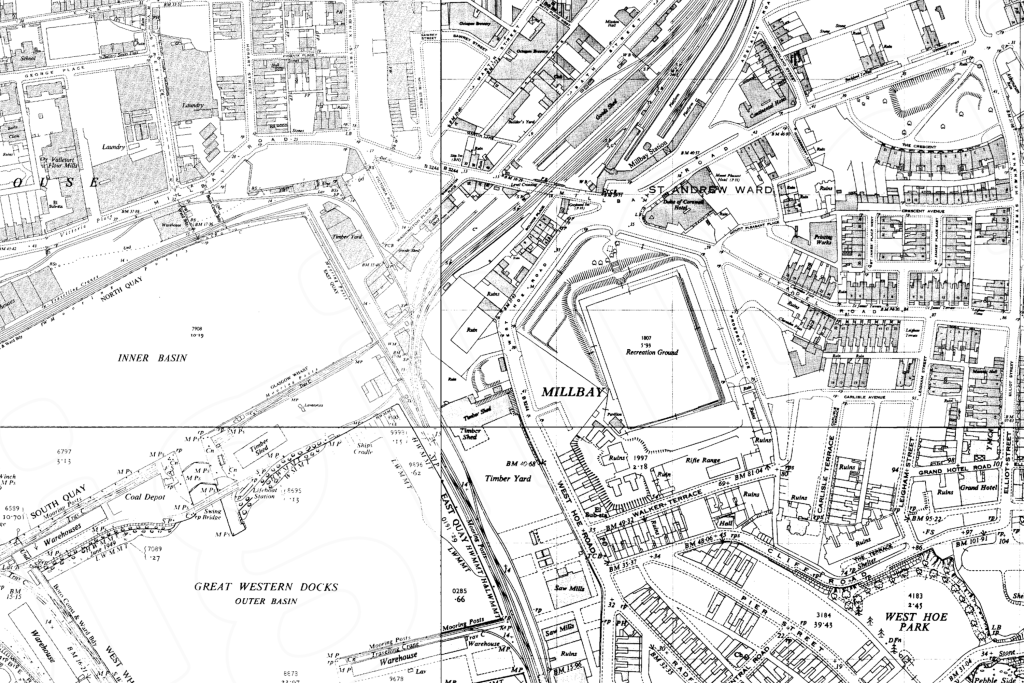
Millbay, located in Plymouth, is an area of historical significance that has undergone significant changes since 1939. Prior to World War II, Millbay was a bustling port area, with a thriving fishing industry and a busy railway station. However, the outbreak of the war and subsequent bombing of the city led to a decline in the area’s prosperity.
After the war, Millbay was rebuilt and modernised, with new buildings and infrastructure. The former railway station was replaced with a bus station, and the area was developed to accommodate the growing automobile industry. The docks also underwent significant changes, with the construction of new warehouses and the expansion of the container terminal.
In the 1960s, Millbay became home to the Plymouth College of Further Education, which later became the City College Plymouth. This institution played a significant role in the development of the area, attracting students and professionals.

More recently, Millbay has undergone further redevelopment, with the construction of new residential and commercial properties. The area has also become a major transportation hub, with the opening of the Plymouth ferry port and the nearby Plymouth train station.
Today, Millbay is a vibrant area that is home to a diverse range of businesses, including restaurants, shops, and entertainment venues. It is also a popular destination for tourists, who come to explore its historical landmarks and enjoy its picturesque waterfront.
In conclusion, Millbay has undergone significant changes since 1939, from its role as a bustling port and fishing area to a modern transportation hub and residential and commercial district. Despite these changes, the area has retained its historical significance and remains an important part of Plymouth’s cultural heritage.



